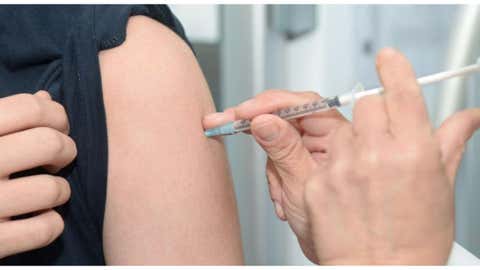New Delhi: A new experimental COVID-19 vaccine has shown promising results in early animal testing, according to researchers who say the preventive may provide protection against existing and future strains of the novel coronavirus, and cost about USD 1 per dose.
The vaccine developed by researchers, including those from the University of Virginia (UVA) in the US, prevented pigs from being becoming ill with a pig model coronavirus, porcine epidemic diarrhea virus (PEDV).
PEDV infects pigs, causing diarrhea, vomiting, and high fever, and has been a large burden on pig farmers around the world.
The new vaccine approach might one day open the door to a universal vaccine for coronaviruses, including coronaviruses that previously threatened pandemics or perhaps even coronaviruses that cause some cases of the common cold, the researchers said.
According to the researchers, the vaccine offers several advantages that could overcome major obstacles to global vaccination efforts.
It would be easy to store and transport, even in remote areas of the world, and could be produced in mass quantities using existing vaccine-manufacturing factories, they said.
“Our new platform offers a new route to rapidly-produce vaccines at very low cost that can be manufactured in existing facilities around the world, which should be particularly helpful for pandemic response,” said Steven L. Zeichner from UVA.
Described in the journal PNAS, the vaccine-production platform involves synthesising DNA that directs the production of a piece of the virus which can instruct the immune system to mount a protective immune response against the virus.
“Killed whole-cell vaccines are currently in widespread use to protect against deadly diseases like cholera and pertussis. Factories in many low-to-middle-income countries around the world are making hundreds of millions of doses of those vaccines per year now, for a USD 1 per dose or less,” Zeichner said.
“It may be possible to adapt those factories to make this new vaccine. Since the technology is very similar, the cost should be similar too,” he added.
The vaccine takes an unusual approach in that it targets a part of the spike protein of the virus, the “viral fusion peptide,” that is essentially universal among coronaviruses.
The spike protein helps the virus to enter the human cells.
The fusion peptide has not been observed to differ at all in the many genetic sequences of SARS-CoV-2 that have been obtained from thousands of patients around the world during the pandemic.
The resaerchers made two vaccines, one designed to protect against COVID-19, and another designed to protect against PEDV.
PEDV and the virus that causes COVID-19 are both coronaviruses, but they are distant relatives.
PEDV and SARS-CoV-2, like all coronaviruses, share several of the amino acids that constitute the fusion peptide.
The researchers observed that both the vaccine against PEDV and the vaccine against SARS-CoV-2 protected the pigs against illness caused by PEDV.
The vaccines did not prevent infection, but they protected the pigs from developing severe symptoms, much like the observations made when primates were tested with candidate COVID-19 vaccines.
The vaccines also primed the immune system of the pigs to mount a much more vigorous immune response to the infection, the researchers said.
If both the PEDV and the COVID-19 vaccines protected the pigs against disease caused by PEDV and primed the immune system to fight the disease, it is reasonable to think that the COVID-19 vaccine would also protect people against severe COVID-19 disease, they said.
PTI
